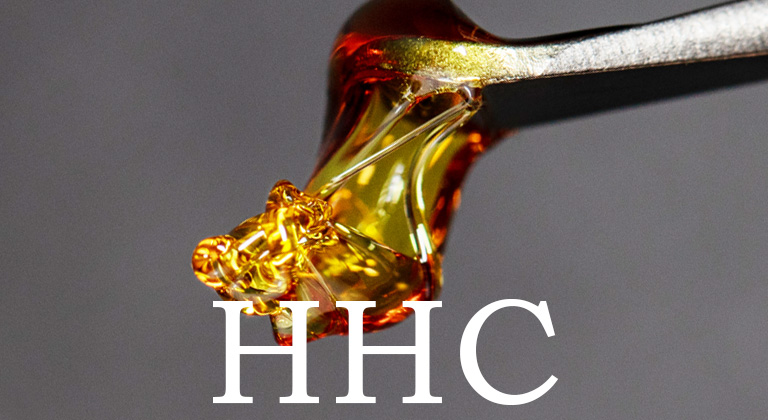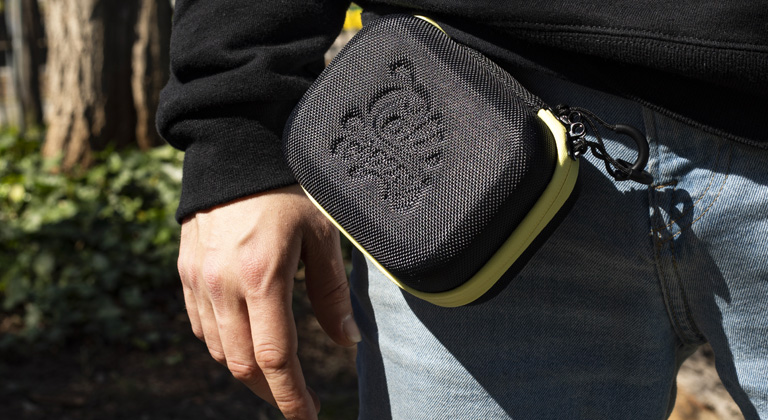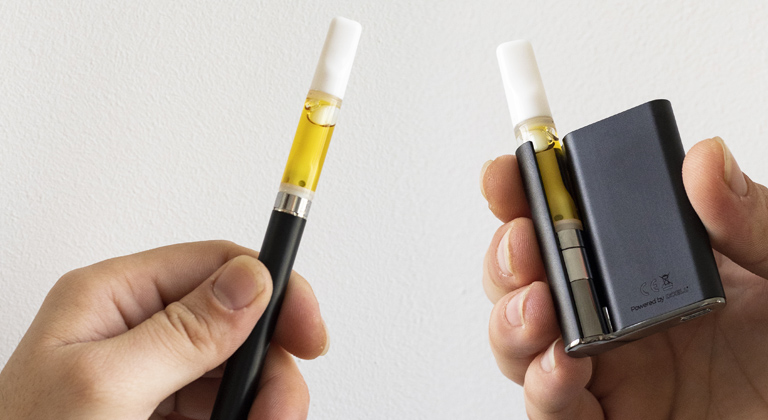Hexahydrocannabinol (HHC) is generating quite the stupor on the market, as it’s a new cannabinoid and we still don’t know much about its effects or how it’s made – whether it’s entirely synthetic or it can be found in the plant. This has caused some confusion among the public.
However, products made using HHC, especially vaping cartridges, are becoming more and more popular on the US market. Let’s have a look at hexahydrocannabinol, how it’s made and what effects can be expected after consuming it.
What is HHC (hexahydrocannabinol)?
Even though this cannabinoid is quite recent on the market, it was actually created in 1944 by the US Chemist Roger Adams, who added hydrogen molecules to the cannabinoid Delta-9 THC (a process known as hydrogenation), creating HHC or Hexahydrocannabinol.
One of the most controversial questions is regarding whether HHC can be found naturally in cannabis plants or if it’s a synthetic compound created in a lab. The thing is, both positions are true in their own way.
It’s true that HHC or hexahydrocannabinol can be found naturally (in small amounts) in hemp seeds and in pollen. However, in order to satisfy the market and HHC demands, cannabis isn’t enough as extraction processes aren’t worth the results due to the low concentration. That’s why HHC is mainly made in labs using other cannabinoids extracted from the plant (mainly, as many cannabinoids are relatively easy to replicate or turn into another cannabinoid synthetically).
Therefor, even though we can’t confirm that it’s found entirely naturally in cannabis, it’s not the same as synthetic cannabinoids; it’s something in the middle, and has become known as a semi-synthetic cannabinoid.
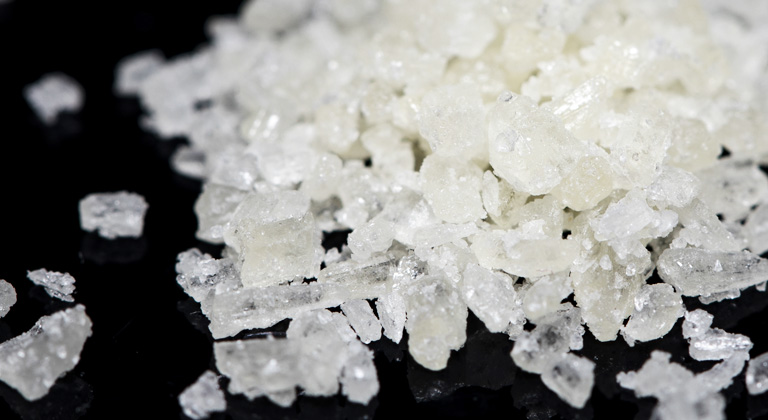
How is HHC Mace?
HHC is becoming more popular and many are investigating its beneficial effects and the most efficient way to produce it. This compound is being sold mainly in the US, where cannabis regulation is more advanced than most other countries, although it’s also becoming popular in Europe over time. In fact, this molecule is produced in labs by converting certain phyto-cannabinoids.
This process, as we mentioned earlier, is called hydrogenation and it’s based on combining cannabinoid-rich extracts with hydrogen in a pressurized chamber. Hydrogenation changes the structure of the cannabinoid, decomposing carbon links – in order to accelerate this process catalysts such as nickel or palladium are often used.
What Effects Does HHC Produce?
The psychoactive and side effects of HHC aren’t entirely known yet, as it’s quite a recent element and more research needs to be done.
However, we do know that this compound produces a similar effect to THC, although many people have confirmed that it’s not as intense. This would make sense, as HHC seems to have a similar structure to Delta-9 THC, with the main difference being that HHC has hydrogenated carbon.
Many consumers confirm that HHC has a similar effect to THC, producing euphoria, a stoned sensation, perception changes, uncontrollable laughter and hunger. This sounds similar to cannabis’s psychoactive effects, right?
Many consumers also confirm that the side effects produced by this cannabinoid are the same as those produced by tetrahydrocannabinol; dry mouth, paranoia etc.
However, when it comes to how strong it is, we don’t quite know yet; some say that HHC is somewhere between Delta-8 THC and Delta-9 THC; it’s stronger than the first, but softer than the second, while others state that it’s less potent than both.
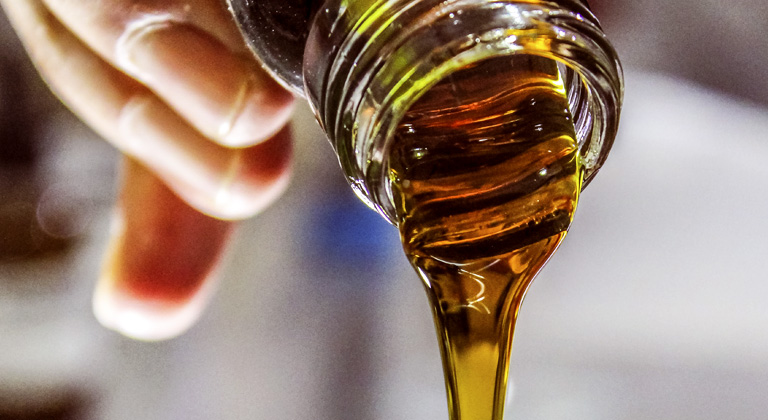
How does HHC Interact with the Body
This difference in opinion might originate in how this compound interacts with the body, specifically the endocannabinoid system. While we still need more research , it seems that HHC is capable of interacting with CB1 and CB2 receptors, provoking the previously described effects.
However, it seems that there’s another factor to keep in mind when it comes to measuring HHC’s psychoactive capacity. After the hydrogenation process, a hexahydrocannabinol-ich oil called HCO is obtained. This oil, which is used to make vaping cartridges, contains two types of HHC: 9r HHC, which combines with the endocannabinoid system thanks to its chemical structure, and 9s HHC, which doesn’t appear to have the ability to combine with CB1 and CB2 receptors, meaning it doesn’t produce the mentioned effects.
Therefore, the strength produced by HHC oil vaping cartridges depends on the proportions of each of the types of HHC, as well as the terpene profile used.
To summarize, nowadays the effects produced by popular cannabinoids like THC and CBD are still being studie; there’s still quite a way to go when it comes to findind out more about consumers or patients consuming this newer cannabinoid.
Does HHC Have Therapeutic Uses?
This controversial component is still quite far away from having the scientific backing that cannabinoids such as CBD have. Medical benefits are something that have yet to be studied.
Some researches, however, have talked about the possible potential of HHC for therapeutic uses, and have began studying its properties.
A study done in 2011 shows that some synthetic HHC analogues could have the capacity to reduce tumor growth in breast cancer patients, and another study done in 2007 revealed it has the capacity to reduce pain significantly; even though this study was done using mice, the results were promising and could place hexahydrocannabinol as a possible pharmaceutical pain relief product in the future.
However, as we were saying, it’s still much too early to guarantee the safety and possible side effects of this compound; more research is needed in order to establish regulation, dosage and uses.
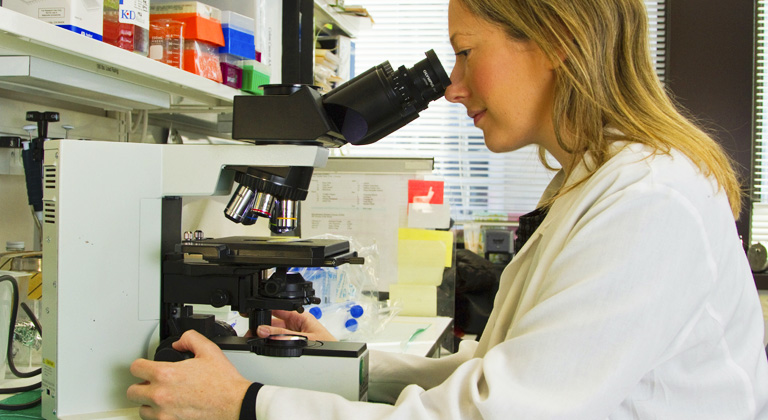
Is HHC Legal?
Just like phyto-cannabinoids and cannabis-derived products, the legality of HHC is a sensitive topic and it can be complicated to shed light on. Hexahydrocannabinol is currently sold in the US, and it’s one of the few countries that have launched this product in relative legality.
The 2018 Farm Bill established that hemp plant and derivates are legal as long as they don’t go over the established minimum of 0.3% THC, so this means for the moment HHC products are legal.
In the case of other compounds such as Delta-8 THC, which was recognized as a legal product in may of 2022 under the same law, it’s still worth keeping in mind that these products are new, and federal law may change in the future. Either way, many states also have the power to prohibit HHC (just like many have done with delta 8 THC) within their jurisdiction.
It’s also true that, due to legal grey areas in many countries, HHC has been popping up in European countries and North America.
What’s for certain is that cannabis plants and their compounds are proving to be an incredibly versatile treasure trove of possibilities now that international regulation is taking place; something that never happened before and needs to keep happening, as it’s been proven that this age-old plant still has a lot to offer.
So, what did you think? Did you already know about HHC? Share your opinions and knowledge with the community in the comments below!
Until next time!
Cali Terpenes

